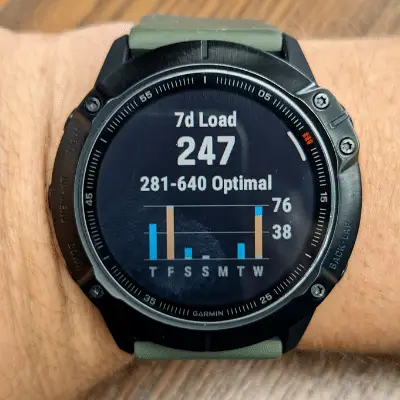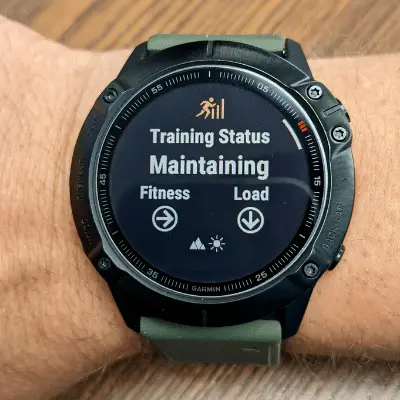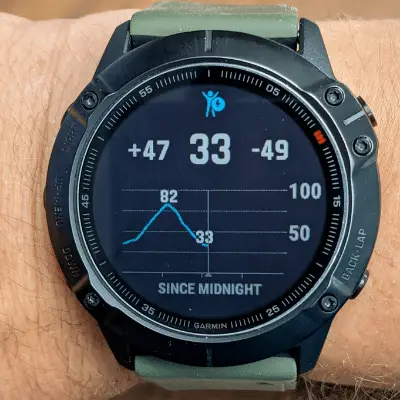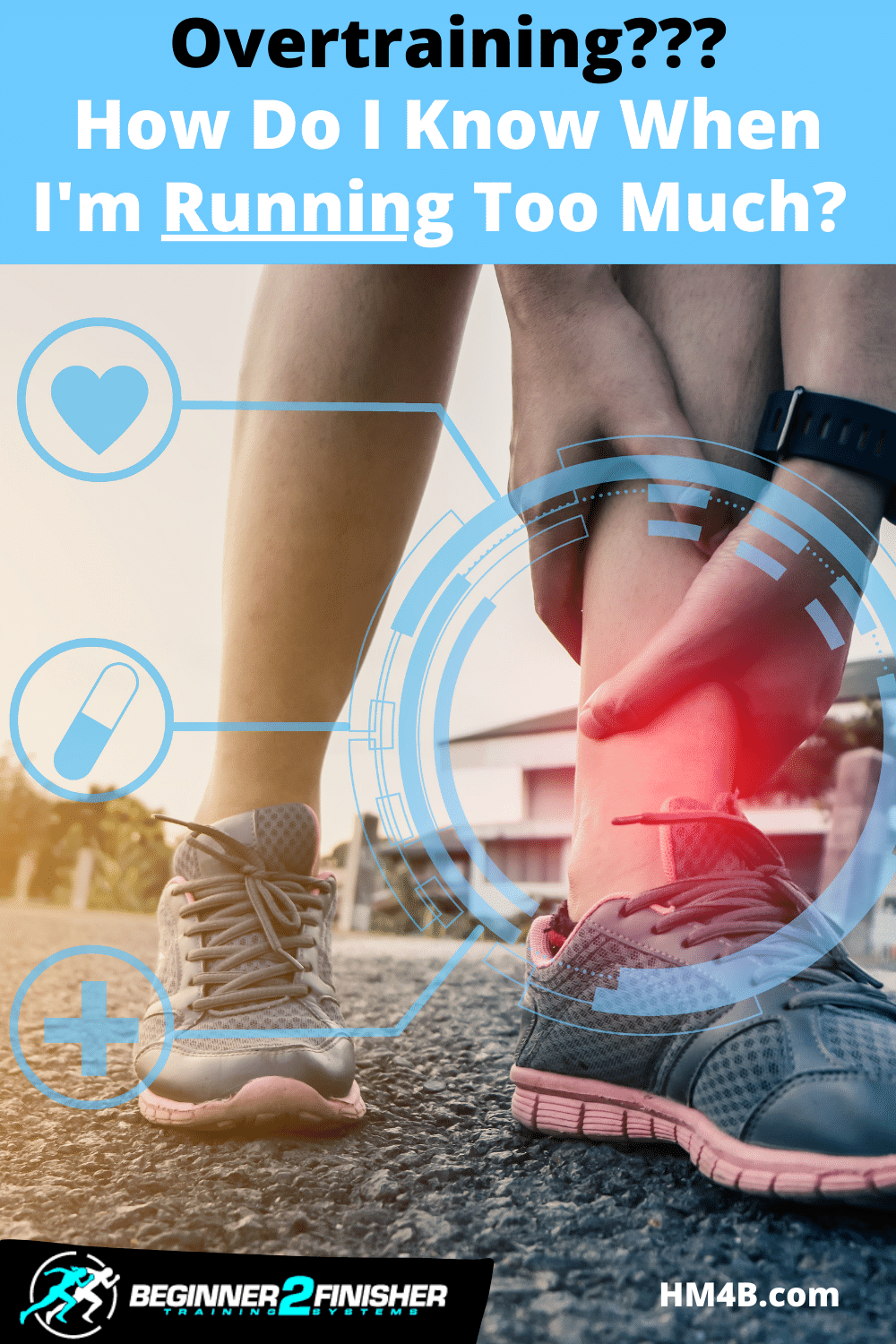If you keep picking up injuries, always feel tired, your performance is declining and you’re constantly feeling below par, these are all clear signs of overtraining. It can also affect your appetite and you may find yourself losing weight or gaining weight, and often feeling irritable.
What Is Overtraining?
Overtraining is when you continually push your body without allowing enough rest and recovery between workouts. It can also occur when you do not consume enough calories whilst training which in turn will have a negative effect on your body by lowering your immune system.
What Are The Two Types Of Overtraining?
There are two types of overtraining – sympathetic and parasympathetic. These terms relate to anaerobic and aerobic training and the effects each of these has on the body:
Sympathetic (Anaerobic)
This type of overtraining is related to an anaerobic activity which is high-intensity exercise such as heavyweight training and sprinting, which both use the anaerobic system. This kind of training requires a phenomenal amount of energy, burns a lot of calories, and requires the correct amount of rest and recovery afterward.
Parasympathetic (Aerobic)
This type of overtraining relates to high volumes of aerobic activity such as long-distance running (half marathons and marathons), which is lower in intensity, but longer in duration. This makes it aerobic unless you start fitting in all-out sprint intervals, which will then use the anaerobic system. Equally, this kind of exercise requires sufficient recovery periods in between, or at very least, shorter duration recovery runs in between.
Also, check out the best protein recovery snacks for runners.
Best Hack To Prevent Overtraining – get a personal wrist coach with training status reports
Smart GPS Running Watches (My Review) have been around for years now. Garmin watches, especially, have gotten better and better with not only the amount of running data they collect but how they assimilate the data into useful reports. I upgraded from a Garmin Forerunner 235 (which still works-4 years old now) to the Garmin Fenix 6X Pro. The coolest two features of the Garmin Fenix 6x Pro watch are the reports dealing with your “body battery” and “training status.” Click here if you want to know more about the “body battery” feature. (Garmin website)
“The Training status feature considers changes in fitness level ( your VO2 max ), heat and altitude performance acclimation, your current acute (7-day) training load, and any change in your longer-term training load.” (Garmin Support)
Of all the watches I reviewed, these 4 Garmin watches have this feature (more on Garmin website):
- The Forerunner 245 / 245 Music (My Review)
- Forerunner 645 / 645 Music
- Forerunner 945
- Garmin 5 Series
- Garmin 6 Series (Fenix 6x Pro)
Basically, my new watch, the Garmin Fenix 6x Pro, is my wrist running coach. In fact, if someone that was an intermediate runner was considering hiring a running coach, which I am, or purchasing the Garmin Fenix 6x Pro. As hard as it is to say it, I would recommend the watch first, and then the running coach for advice.
Check out my reviews on the Best Running GPS Smartwatches you can purchase



What Causes Overtraining? Is It The Athlete, The Coach, Or Both?
Overtraining happens when warning signs from the body are ignored. A seasoned, well-experienced athlete would usually be aware of these signs. Also, an experienced coach should be able to recognize these signs in their athlete and take the appropriate action.
However, problems can arise when there is a competition or race looming and the temptation is to keep pushing harder to achieve your personal best. This, coupled with neglecting to give the body adequate rest and/or calories to aid recovery and repair, can be a recipe for disappointment and disaster!
As a runner becomes more experienced they will begin to notice the symptoms and signs and take correct recovery action sooner rather than later. An exhausted athlete is far less likely to perform at their best on the big day than one who took a few days’ rest and recovery before competition or race day.
Check out 6 Things Running Coaches Wish You Would Stop Doing!
What Are Common Symptoms/Signs Of Overtraining From Running?
So how do I know if I’m overtraining? Here is a list of the classic symptoms which you must look out for:
- Recurring injuries
- Fatigue
- Elevated resting heart rate
- Decreased performance
- Aching and pain in joints and muscles
- Sleep problems
- Decreased appetite
- Irritability
Is Overtraining The Main Reason Runners Get Injured?
Absolutely, although incorrect footwear is right up there too, and of course, if you are running on very uneven terrain you are more at risk of injury. But overtraining is the most common reason.
This is because the muscle fibers and joints are taking a real hammering during those high mileage or high-intensity runs. Also, the cardiovascular system is working extremely hard to pump blood and oxygen around the body to fuel the exercise. To properly recover, adequate calories from good quality nutrition must be consumed.
Sleep is another key factor as this is when the body does the majority of its repairing, so lots of early nights are essential. Taking a nap during the day is another way to give your body an additional recovery boost.
Related: What Is Polarized Training? Is The Mid-Run Finally Gone?
Is Overtraining Harmful To Runners?
Most definitely. Not only can it damage you structurally, but it can also have serious effects on your nervous system, immune system and even cause heart problems. It can also really screw things up if you sustain an injury or come down with a nasty cold all because you weren’t taking adequate rest and recovery.
All of these things can seriously put your training behind that all-important schedule, so it’s just not worth it. Listen to your body every time and get to learn the early warning signs of overtraining.
What are the heart rate zones for runners?
Is It Better To Undertrain Or Overtrain When Running?
Well ideally, neither but it is better to undertrain than to overtrain if you want to stay injury-free. But if you are training for a marathon, for example, you must get enough training into your schedule.
If you undertrain and your body hasn’t experienced running a long enough distance or for a long enough duration, you will come unstuck on race day and will most likely suffer from cramps or gastrointestinal issues (GITS). This will leave you far more likely to pick up an injury.
What Is The Easiest Way To Prevent Overtraining?
Follow a disciplined training schedule and listen to your body. Know how many calories you need to consume to fuel your exercise, make sure you use a stretching and flexibility regime and get enough rest and quality sleep.
Related: 11 Reasons Why Your Running Performance Isn’t Improving
How Many Rest Days Do You Need So That You Don’t Overtrain?
There is no definitive amount of rest days as it all depends very much on the individual and the intensity of the exercise. As you become more seasoned your body will be able to do more, but this must take place over a gradual period of time. Some people can train 6 days per week with just 1 day of rest, but others may find they can only train every other day.
Again, listening to your body is essential. On days when you feel really tired or extra sore, rather than just doing nothing, spend time on a good stretching session and your muscles will love you for it. You could also invest in a nice massage and maybe a relaxing sauna or steam. You could add in some lighter cross-training days with activities such as yoga. All of these things are great recovery tools so use them
Related: Why Do I Feel Tired After I Run (besides exerting energy)?
Can Running Coaches Detect Overtraining Better Than Athletes?
A good running coach should be able to detect the signs of overtraining, but if you are a particularly stoic person and don’t communicate any issues, you cannot expect them to be a mind reader. Communicating clearly with your coach is really important so that you can both get the best from your training
Is Oversleeping A Sign Of Overtraining?
Yes, oversleeping can be another warning sign that you are overtraining. This is because the body needs a certain amount of sleep to recover fully, and if you are not providing it, you will wake up feeling tired and possibly sleep through your alarm. Make sure you get enough sleep at the right times to combat feeling tired at inopportune times.
Can Overtraining Make You Gain Weight?
Yes, this can also happen. This is because overtraining is a huge stressor on the body and can result in the body releasing too much of the stress hormone, cortisol. It can also lead to a drop in testosterone levels and both of these things can lead to muscle atrophy and fat gain – especially tummy fat.
So make sure you get good rest between training sessions, listen to your body, never ignore the warning signs and make sure you eat a good, healthy diet with the correct amount of calories to fuel your workload. This way you should be able to reach your goals and go for gold!
Take a Quiz – Am I Overtraining?
Are You Looking For A Half Marathon Training Schedule?
12-week/15-week beginner half marathon training plan (free sign up required)
8-week beginner half marathon training plan
8-week intermediate half marathon training plan (easily run a 5K)
4-week advanced half marathon training plan (already run 6+ mile long runs)
Half marathon walking training plans complete with pacing charts
References
https://www.healthline.com/health/signs-of-overtraining
| Help support me and subscribe to my YouTube channel. YouTube video - 30 ways to make your runs less painful! Coach Scott's Credentials:
|
To sign up for a FREE half marathon training schedule, log sheet, and pace predictor CLICK HERE.

Recommended gear for runners
Connect with me:
| facebook.com/BeginnerToFinisher/ |



14 thoughts on “How Do I Know If I’m Overtraining?”